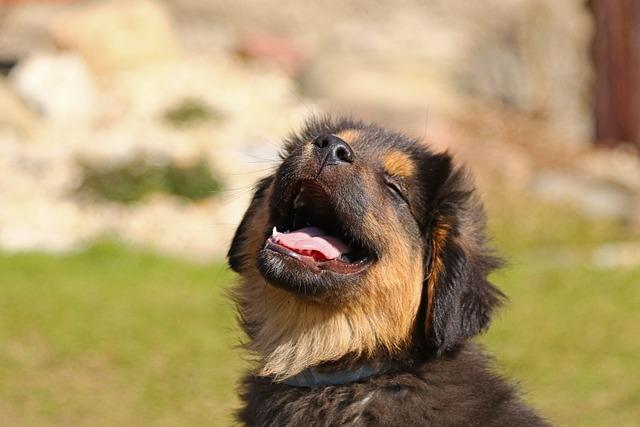Welcoming a new puppy into your home is an exciting and joyful experience, brimming with the promise of wagging tails and playful antics. Yet, amidst the cuddles and games, lies a crucial aspect of puppyhood that sets the foundation for a happy and well-adjusted dog: socialization. This gentle guide explores the importance of socializing your puppy, offering insights into how these early interactions shape their ability to navigate the world with confidence and ease. By understanding the significance of socialization, you can help your furry friend grow into a well-mannered and sociable companion, ready to embrace every adventure with you by their side.
Understanding the Critical Socialization Window for Puppies
The early weeks of a puppy’s life are a whirlwind of discovery, and it’s during this time that their socialization window is wide open. This period, typically spanning from 3 to 14 weeks of age, is crucial for shaping a puppy’s temperament and behavior. During this window, puppies are like sponges, absorbing experiences that will define their future interactions with the world. Exposing them to a variety of stimuli can help prevent fear and aggression later in life.
To make the most of this critical period, ensure your puppy is introduced to a diverse range of experiences, including:
- People: Encourage interactions with people of different ages, genders, and appearances to build comfort with human diversity.
- Animals: Safe, supervised playdates with other vaccinated dogs and animals can foster positive interspecies relationships.
- Environments: Gradually expose them to different environments, such as parks, urban areas, and rural settings, to build adaptability.
- Noises: Introduce common sounds like doorbells, traffic, and household appliances to prevent future noise anxiety.
By embracing this window of opportunity, you lay the groundwork for a well-adjusted, confident companion who can navigate the complexities of the world with ease.

Creating Positive Experiences with Other Dogs and Humans
Ensuring your puppy has positive interactions with other dogs and humans is a cornerstone of effective socialization. These experiences can shape their behavior and outlook for the rest of their lives. During these interactions, it’s important to focus on a few key elements:
- Variety of Experiences: Introduce your puppy to a wide range of dog breeds and human personalities. This helps them become adaptable and less likely to react fearfully in unfamiliar situations.
- Controlled Environment: Ensure that these encounters happen in a safe and controlled setting. This could be a puppy class or a playdate with a friend’s well-behaved dog, where both parties are calm and receptive.
- Positive Reinforcement: Use treats and praise to reward your puppy for calm and friendly behavior. This positive reinforcement helps to build their confidence and encourages them to repeat these good behaviors.
By carefully managing these interactions, you lay the groundwork for a well-rounded and sociable adult dog. Remember, every positive experience builds their trust and strengthens their ability to engage harmoniously with the world around them.
The Role of Environment in Shaping a Well-Adjusted Puppy
A puppy’s surroundings play a crucial role in their development, acting as a silent sculptor in shaping their personality and behavior. A well-adjusted puppy is often the result of a nurturing environment that provides diverse experiences and positive interactions. Puppies learn from every sight, sound, and scent they encounter, making it essential to expose them to a variety of stimuli. This early exposure helps them develop resilience and adaptability, two key traits for a well-rounded adult dog.
To foster a balanced environment, consider the following elements:
- Social Interactions: Introduce your puppy to different people and animals to enhance their social skills.
- Exploratory Play: Encourage exploration by offering a range of toys and safe spaces for play.
- Consistent Routine: Establish regular feeding, play, and rest times to provide a sense of security.
- Calm Atmosphere: Maintain a peaceful home environment to help them feel safe and relaxed.
By thoughtfully crafting your puppy’s environment, you lay the groundwork for a confident and content companion, ready to face the world with a wagging tail and a curious nose.
Practical Tips for Socializing Your Puppy Safely and Effectively
Ensuring your puppy is well-socialized is essential for their development and your peace of mind. Here are some practical tips to help you socialize your puppy safely and effectively:
- Start Early: Begin socialization as soon as your puppy is comfortable in their new home. The earlier you start, the more adaptable they will be to new experiences.
- Introduce Gradually: Slowly expose your puppy to different environments, sounds, and people. This helps them adapt without feeling overwhelmed.
- Use Positive Reinforcement: Reward your puppy with treats and praise when they interact positively with new experiences. This encourages good behavior and builds their confidence.
- Be Mindful of Health: Ensure your puppy is up-to-date with vaccinations before introducing them to other animals. This keeps them safe from potential illnesses.
- Observe Body Language: Pay attention to your puppy’s cues. If they seem anxious or scared, remove them from the situation and try again later.
By following these tips, you’ll help your puppy grow into a well-adjusted and happy companion. Remember, patience and consistency are key to successful socialization.

